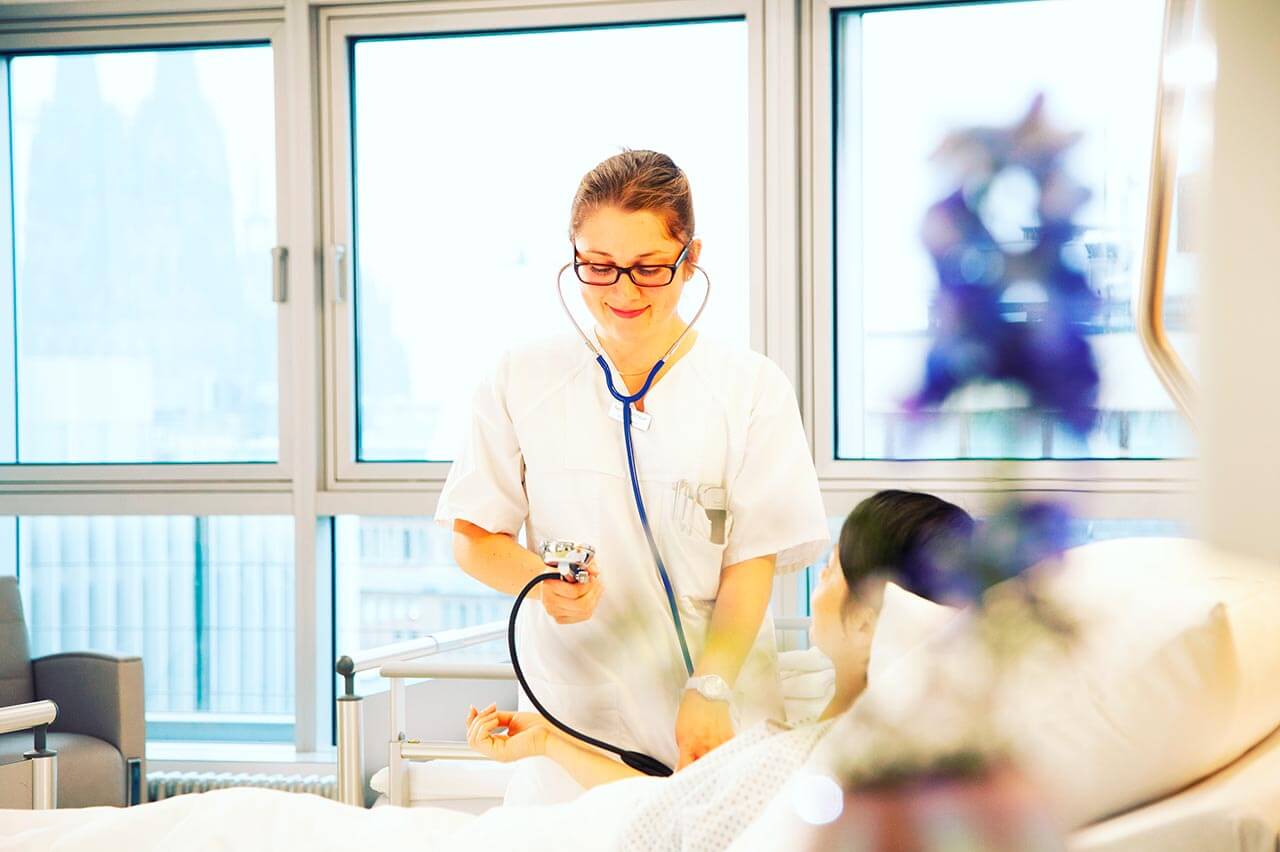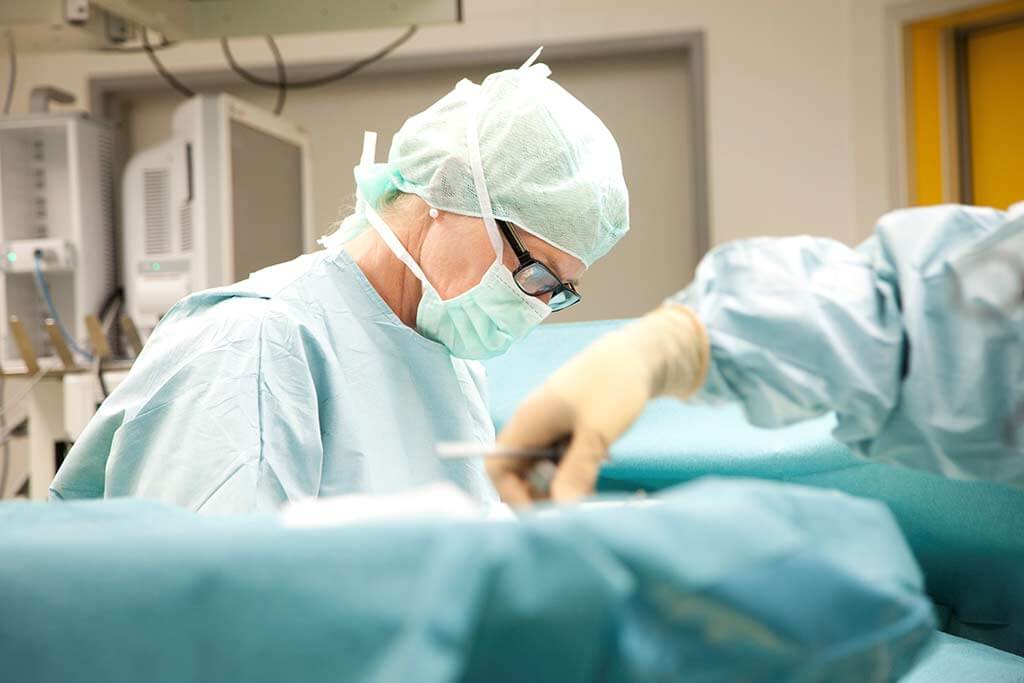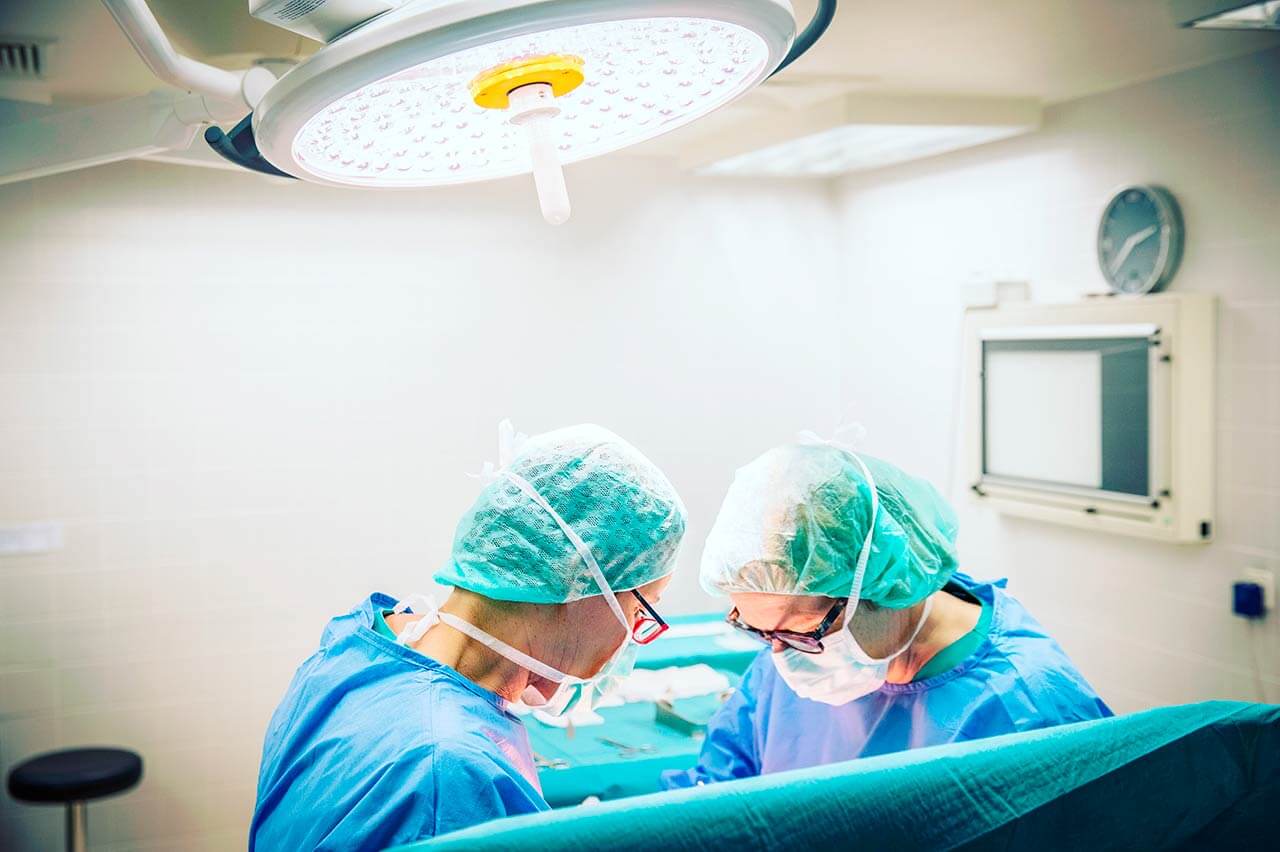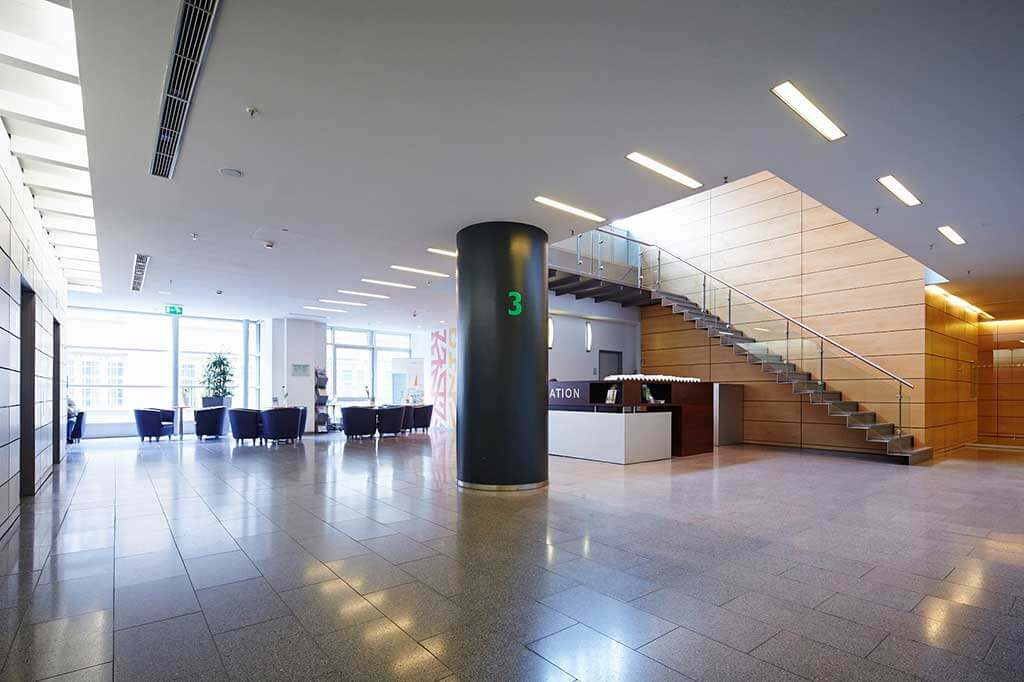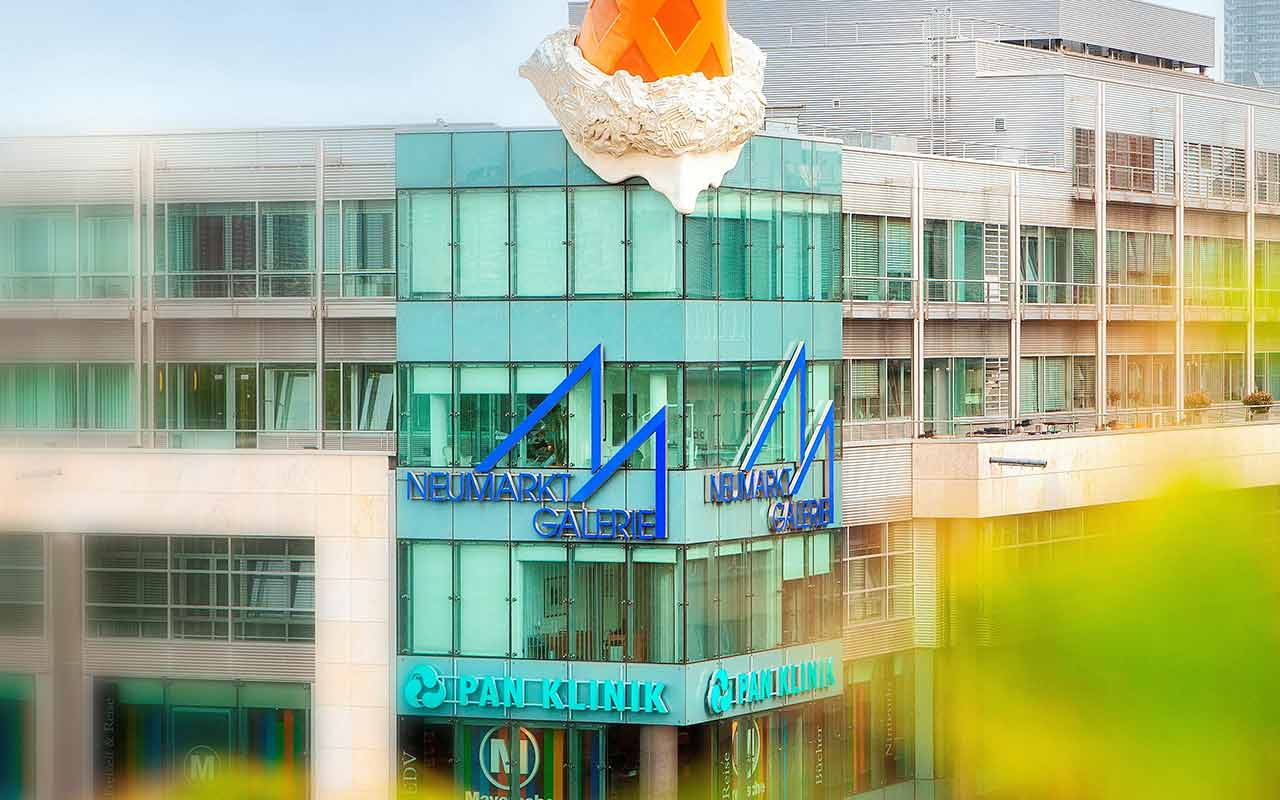
The program includes:
- Initial presentation in the clinic
- clinical history taking
- review of medical records
- physical examination
- laboratory tests:
- complete blood count
- general urine analysis
- biochemical analysis of blood
- inflammation indicators (CRP, ESR)
- indicators blood coagulation
- neurological examination
- angio-MRI scan
- neuropsychological tests (on indications):
- ENMG (electroneuromyography)
- EEG (electroencephalography)
- SEPs (somatosensory evoked potentials)
- VEPs (visually evoked potentials)
- BAEP tests (brainstem auditory evoked potential)
- transcranial doppler
- echocardiography (TEE)
- consultation of related specialists
- symptomatic specific treatment
- the cost of essential medicines and materials
- nursing services
- control examinations
- full hospital accommodation
- developing of further guidance
Required documents
- Medical records
- Brain MRI/CT scan (if available)
Service
You may also book:
 BookingHealth Price from:
BookingHealth Price from:
About the department
The Department of Neurology and Epileptology at the PAN Clinic Cologne provides the full range of medical services for the patients suffering from diseases of the central and peripheral nervous system. The department provides both diagnostics and treatment of various neurological disorders, including chronic headaches, migraines, dizziness, stroke, dementia, Parkinson's disease, multiple sclerosis, depression, anxiety disorders and others. The work of the department's neurologists is based on an individual approach to each patient and the use of effective drugs for diseases of the nervous system. The specialists devote enough time to personal communication with their patients, explaining them the specificities of their disease and methods of controlling it. The department's diagnostic rooms are equipped with state-of-the-art devices, which allows the doctors accurately detect pathological changes in the nervous system, including at the very early stages, prior to the onset of symptoms. The medical team cooperates closely with neurosurgeons, radiologists and doctors from other related specialties in order to ensure the best possible treatment outcome for patients. The Chief Physician of the department is Dr. med. André Heep.
The department has been providing its services for more than 16 years. During this time, it has gained a huge clinical experience, thanks to which many patients have a chance to start a new life without neurological disorders. The department's neurologists have a wide range of diagnostic tests, including electroencephalography, electroneurography, electromyography, color duplex sonography, etc. These diagnostic studies are included in the standard diagnostic protocols and allow the doctors to accurately assess both structural and functional indicators of the brain and spinal cord, as well as of the peripheral nervous system. The department cooperates with radiologists, so patients can also undergo computed tomography, magnetic resonance imaging and angiography (if clinically indicated). Upon confirmation of one or another neurological diagnosis, the patient receives an individually developed drug therapy regimen. If the prognosis regarding the results of conservative treatment is unsatisfactory, neurosurgeons will be involved in the therapeutic process.
As part of the Cologne group of hospitals specializing in multiple sclerosis treatment, the department offers excellent options for the control of this incurable pathology, which usually affects young people. The treatment is based on drug therapy aimed at preventing the progression of multiple sclerosis, alleviating symptoms and minimizing the frequency of exacerbations of the pathology. In addition, cooperation with other doctors and medical centers specializing in multiple sclerosis treatment allows the doctors to exchange experiences and offer patients innovative therapeutic procedures to combat pathology.
The department's specialists also have the necessary resources to diagnose epilepsy and provide medical care to patients with this disease. The competence of neurologists also includes drug therapy for epileptic seizure relief. Depending on the particular type of epilepsy, the stage of the disease, the frequency of epileptic seizures and other clinical data, the patient is individually prescribed a complex of drugs (anticonvulsants), which suppress the epileptiform activity of the brain. Whenever required, the specialists also additionally prescribe such psychotropic drugs as sleeping pills, antidepressants and tranquilizers.
In addition, the department's team of doctors is proud of its successful results in the treatment of inflammatory diseases of the brain (meningitis and encephalitis), Parkinson's disease, Alzheimer's disease, polyneuropathies, myopathies and other pathologies. To treat or control the above mentioned diseases, the department uses the very latest drugs, many of which are available only in Germany.
The department specializes in the diagnostics and treatment of the following diseases:
- Diseases of the central nervous system
- Brain tumors
- Stroke
- Inflammatory diseases of the central nervous system (for example, meningitis, encephalitis)
- Functional brain disorders (for example, epilepsy)
- Parkinson's disease
- Dementia (for example, Alzheimer's)
- Autoimmune lesions of the nervous system (for example, multiple sclerosis with brain and spinal cord lesions)
- Diseases of the peripheral nervous system
- Compression peripheral nerve syndromes (for example, in case of carpal tunnel syndrome, spinal disc herniation)
- Polyneuropathy
- Myopathies
- Other neurological disorders
The department's range of diagnostic and therapeutic services includes:
- Diagnostics
- Electrophysiological tests (for example, electroencephalography and electroneurography)
- Electromyography and recording of evoked potentials
- Color duplex sonography of the head and neck vessels
- Neuropsychological tests
- Imaging tests (in collaboration with the Department of Radiology)
- Computed tomography
- Magnetic resonance imaging
- Angiography
- Treatment
- Drug therapy with modern medicines
- Other diagnostic and therapeutic options
Curriculum vitae
Higher Education and Professional Career
- Study of Human Medicine at the Universities of Padua, Bonn, Hanover and Cologne.
- Board certification training in Neurology at the hospitals in Bonn, Cologne and Langenfelde.
- Since 1999 Joint Private Practice in Neurology and Psychiatry with Dr. med. Marie-Therese Kälin.
- 2006 - 2013 Joint Private Practice with Prof. Dr. med. Heiko Bewermeyer.
- Head of the Department of Neurology and Epileptology at the PAN Clinic Cologne.
Memberships in Professional Societies
- Professional Association of German Neurologists (BVDN).
- Federation of German Neurologists (BDN).
- German Society of Neurology (DGN).
Photo of the doctor: (c) PAN Klinik
About hospital
The PAN Clinic Cologne is a multidisciplinary medical facility that combines advanced medicine, excellent quality of patient care and a high level of comfort. Founded in 1999, the clinic is located in the very heart of Cologne. During this time, the medical complex has gained long clinical experience, but at the same time it has preserved its primary concept of medical care – high-quality diagnostics and treatment using the achievements of modern medicine.
Today, a huge team of doctors at the clinic admits patients in 25 medical fields, including neurosurgery, neurology, orthopedics, cardiology, gynecology, mammology, urology, endocrinology, plastic surgery, etc. It is worth noting that the clinic employs the best specialists with a wealth of experience and thorough clinical training in the best medical facilities in Germany, other countries of Europe and USA. The clinic's medical team includes many professors who are distinguished by outstanding achievements in the treatment of diseases of a particular profile and who successfully conduct research activities, participate in national and international congresses, symposia and other events.
The clinic annually provides treatment to more than 10,000 patients, and more than 3,000 interventions of varying complexity are performed in its operating rooms. The operating theaters have state-of-the-art technology and equipment for classical open surgery and minimally invasive interventions. In addition, all departments of the medical facility have advanced diagnostic equipment, so that doctors always make the correct diagnosis, which determines the success of subsequent treatment. During the therapeutic process, the specialists strive to choose the most sparing, but at the same time highly effective treatment regimen.
The quality of medical services provided in the clinic is awarded with the prestigious DIN ISO 9001 certification, and therefore patients trust their health to doctors with complete confidence and benefit from the optimal treatment of the European standard.
Photo: (с) PAN Klinik, (c) depositphotos
Accommodation in hospital
Patients rooms
The patients of the PAN Clinic Cologne live in light and cozy rooms with a modern design. A standard patient room includes a comfortable automatically adjustable bed, a bedside table, an air conditioning, a DVD player, a telephone, a TV and a nurse call system. The patient rooms also have Wi-Fi. Each patient room has an ensuite bathroom with shower and toilet. The bathroom also has a hairdryer and towels.
If desired, the patients can live in enhanced-comfort rooms. These patient rooms are distinguished by their more exclusive interiors, as well as beautiful views of the Cologne Cathedral and cityscapes. The bathrooms in these enhanced-comfort facilities include disposable slippers, a bathrobe, towels and toiletries. In addition, the patients living in enhanced-comfort rooms are offered a special menu.
Meals and Menus
The patient and his accompanying person are offered tasty and balanced three meals a day: buffet style breakfast and dinner, as well as lunch consisting of 3-4 courses. If for some reason you do not eat all the foods, you will be offered an individual menu. Please inform the medical staff about your dietary preferences prior to treatment.
Further details
Standard rooms include:
Religion
The religious services are available upon request.
Accompanying person
During the inpatient program, the accompanying person can live with the patient in a patient room or a hotel of his choice. Our managers will help you choose the most suitable option.
Hotel
During the outpatient program, the patient can stay at the hotel of his choice. Our managers will help you choose the most suitable option.
